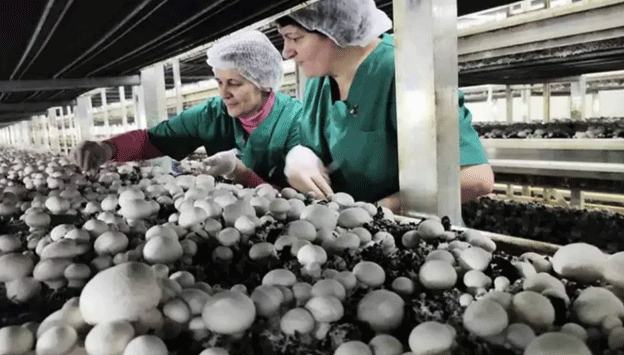The saga of “Mushrooms of Belogorye” serves as a stark reminder of the risks that agricultural enterprises can face. Founded in 2016 in the Belgorod region, the company initially sought to capitalize on the growing demand for mushrooms and truffles. However, the business became embroiled in financial difficulties, culminating in bankruptcy proceedings initiated by Sberbank due to a debt of 3.16 million rubles.
Efforts to sell the greenhouse complex began with an initial asking price of 313.8 million rubles. Over the course of nearly a year, the price dropped to 200.5 million rubles, yet the complex, including greenhouses, storage facilities, irrigation systems, and various equipment, failed to attract any buyers. This decline in interest raises critical concerns about the viability of similar enterprises in the agricultural sector.
Factors Contributing to the Bankruptcy
Several factors contributed to the downfall of “Mushrooms of Belogorye”:
- Financial Mismanagement: A temporary manager’s assessment concluded that the company was not only unprofitable but also unable to meet its current financial obligations. With debts totaling approximately 222 million rubles owed to creditors, the financial strain proved insurmountable.
- Lack of Competitive Strategy: Despite the growing market for mushrooms, the company failed to adapt to changing market demands and economic conditions. This stagnation ultimately diminished its appeal to potential buyers.
- Legal and Regulatory Challenges: The ongoing legal battles regarding bankruptcy proceedings and the push for the former owners to bear financial responsibility have only complicated the situation further.
- Economic Climate: The broader economic environment, marked by inflation and fluctuating consumer demand, has added to the uncertainty faced by agricultural producers. According to the Federal State Statistics Service, the agricultural sector in Russia has been grappling with rising input costs and shifting market dynamics, which may have further impacted “Mushrooms of Belogorye.”
Lessons for Agricultural Stakeholders
The fate of “Mushrooms of Belogorye” serves as a cautionary tale for farmers, agronomists, agricultural engineers, and other stakeholders in the agricultural industry. Here are some vital takeaways:
- Financial Literacy: Understanding financial management principles is crucial for the long-term sustainability of agricultural businesses. Farmers must be equipped to assess their financial health and make informed decisions.
- Market Adaptability: The agricultural sector must remain responsive to changing market trends and consumer preferences. This adaptability can help businesses stay competitive and relevant.
- Investment in Technology: Investing in modern agricultural technology can enhance productivity and efficiency, potentially mitigating some financial risks associated with traditional farming practices.
- Risk Management: Developing a robust risk management strategy can protect businesses from unforeseen economic downturns and market fluctuations.
The bankruptcy of “Mushrooms of Belogorye” underscores the necessity for sound financial practices and strategic planning in agriculture. As the industry evolves, stakeholders must learn from this case to enhance the resilience and sustainability of agricultural enterprises.










